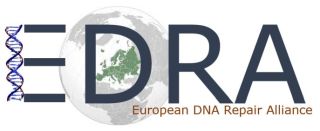|
|
|
Who are we?
Jean-Luc Ravanat is working in the field of radiation-induced DNA damage including both radiobiology and photobiology. His work is focused on mechanistic aspects of DNA lesions formation and repair. For such a purpose analytical methods have been developed to measure with a high sensitivity and specificity DNA lesions in cells mostly using UPLC coupled to tandem mass spectrometry. Joanna Timmins is interested in the fundamental mechanisms underlying the coordinated response of cells to DNA damage and to determine how such processes can contribute to radiation resistance in bacteria (Deinococcus radiodurans) and to drug resistance in cancer cells. To achieve these objectives, her team uses a highly integrated approach combining molecular biology, biochemistry, structural biology and advanced live cell imaging. Jean-François Constant started to work in the field of DNA Repair by the design and synthesis of specific ligands for abasic sites recognition and inhibition of their repair. In collaboration with M. Jourdan, he then investigated the repair efficiency and mutagenicity of clustered lesions containing 8-oxo guanine and abasic lesions such as 2’deoxyribose or 2’deoxyribonolactone. More recent projects concern the biophysical and structural study of protein/DNA and protein/protein interactions by using various techniques such as NMR, SPR, BLI, thermophoresis, fluorescence. Pierre Caron studies DNA repair mechanisms in response to genotoxic agents and anti-cancer therapeutic molecules. During his PhD and post-doctoral work, he used innovative cell models combined with a wide range of techniques to induce DNA damage. This has enabled me to decipher the key mechanisms involved in chromatin maintenance and the regulation of DNA repair events in the context of chromatin. In 2024, he joined the laboratory of Joanna Timmins at the Institute of Structural Biology (IBS) to continue exploring DNA repair within the nuclear space. Thanks to the laboratory’s expertise and the unique environment offered by the IBS and the IRIG campus, he is developing and using advanced proteomics and microscopy approaches to characterize and map DNA repair mechanisms in different parts of the genome in response to various genotoxic agents and anticancer compounds. Hervé Menoni, INSERM researcher, works in the field of DNA repair with a special focus on Base Excision Repair in the context of chromatin. He developed tools to study BER in various chromatin context both in living cells as well as in artificially reconstituted chromatin substrates. Interplay between BER, other DNA repair pathways and DNA transcription are being explored. To determine by structural analysis how the BER initiating factors interact with nucleosomes and chromatosomes is the emerging scope of the group. Marta Oliva-Santiago is a PhD candidate at the University of Copenhagen whose work focuses on identifying novel ubiquitin/SUMO ligases involved in the DNA damage response/replication stress. To this end, the candidate will combine in vitro biochemical and structural studies using Xenopus egg extracts with in vivo cellular work. Her project is part of the Marie Sklodowska-Curie research programme 'RepliFate'. She is particularly interested in mechanisms of DNA damage tolerance that are activated when DNA replication forks encounter DNA damage. |



